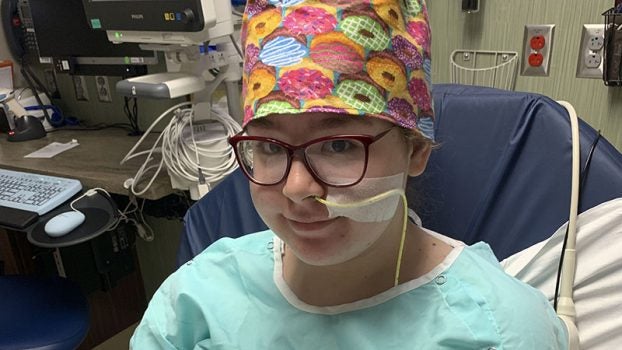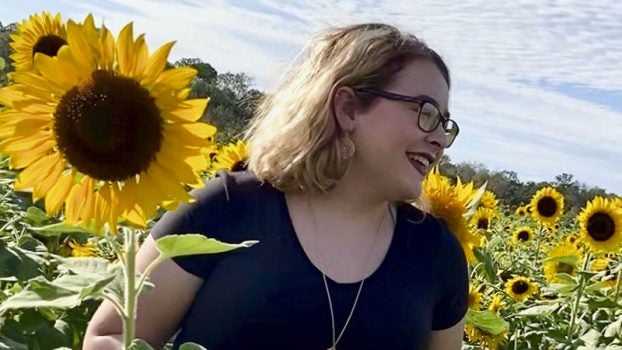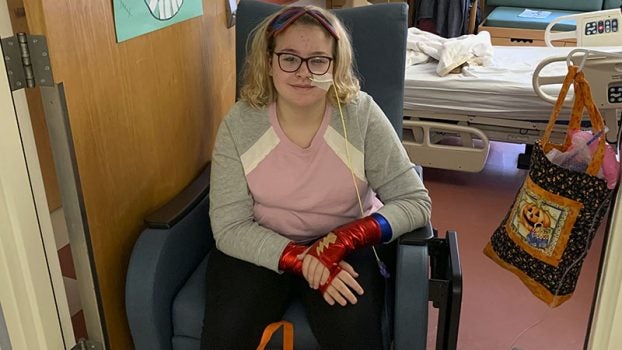Facing chronic pain
Published 7:00 am Saturday, November 9, 2019
Picayune teenager Hannah Katz lives with debilitating pain. Complex Regional Pain Syndrome is a chronic condition that causes prolonged severe pain. It’s an ailment that requires more research to understand how it progresses and what causes it, according to the National Institute of Neurological Disorders. November is CRPS awareness month. Typically, CRPS does not affect children.
Hannah’s CRPS began when she was 11-years-old. At 15, she has traveled from Los Angeles to Minnesota to undergo experimental treatments for the condition.
A major misconception she encounters is people who do not believe she is sick because her pain is not always visible. Normal activities like putting on shoes or taking showers can cause her tremendous pain.
“Even if we are suffering with it, you can’t always see. It’s not a thing that you can just look at me and tell. So I think that there’s a misunderstanding there that, ‘oh you look fine, so you have to be fine,’ but that’s not always the case,” she said.
Some days the effects of CRPS are worse than others, so Hannah’s level of ability can change dramatically over the course of a day. She can go abruptly from having normal mobility to being unable to walk.
“She’s lost some friends who really just thought she was faking,” said Heather Katz, Hannah’s mom, “Most people think she’s making this up, that this just isn’t real.”
CRPS is sometimes caused by trauma or injury, like bone fractures or surgery, according to the National Institute of Neurological Disorders. However, a major trauma does not necessarily have to happen to trigger CRPS. Katz’ CRPS began after she was sick with mono and strep.
Her pain began in her left leg, but has progressed to affect some organs and other limbs.
“I had really bad side pain and they decided that it was because of my gallbladder, but when they took it out it was a perfectly healthy gallbladder,” Katz said. “That’s kind of how CRPS works, it’s normal but it doesn’t feel normal.”
A scan determined that Katz’ gallbladder was functioning at four percent, said her mom Heather Katz, so the doctors expected to remove an extremely diseased gall bladder. Instead the gallbladder was healthy, but her body had decided that it was not functioning, Heather said. The disease has also affected the motility of Hannah’s gastrointestinal system, which means her stomach empties inefficiently, so currently she is only able to eat one meal a day, Heather said. The disease has also begun affecting her blood vessels, so she takes medications to help clot blood.
After receiving treatment from her pediatrician, Hannah began seeing a CRPS specialist in Los Angeles in July. The specialist typically only sees adults, but was convinced to see Hannah after hearing her story. When the clinic in California exhausted every treatment they could offer, Hannah was sent to the Mayo Clinic, a learning and research hospital in Minnesota.
Experimental treatments are not covered by her family’s insurance, so they can become expensive, Heather said. Although Hannah’s doctors in California only charged the Katz for the medication she was given and not for any services, the three days of experimental treatment she received still ran $2,000 a day, Heather said.
“We haven’t really asked for any kind of help because the Lord has truly provided, but the further into this we get, there’s a lot of travel and lodging,” Heather said.
Hannah has been trying experimental treatments for her pain, like Benadryl infusions and Ketamine. She has also received nerve blocks in her back to try to control the pain.
“One of the things that we really want people to have awareness of is that this is real, and people trying to live with it are trying to live with a normal life,” Heather said.
Hannah attends school online through the Pearl River County School District after having to leave Pearl River Central High School because her illness was causing her to miss too many days of school.
There is currently no cure or for CRPS, but Heather said she believes that will change because doctors are working diligently with different patients to determine what works and what does not.
Hannah’s experiences with CRPS, have made her more determined as an individual and prompted her interest in studying neuroscience.
“I want to find a cure and help other people with this, so that it’s no longer named the suicide disease,” Hannah said.
To help raise funds to offset Hannah’s medical and travel expenses, a CRPS Awareness Day will be held Saturday Nov. 9 beginning at 8 a.m. at Friendship Park with a softball tournament, booths for crafts, food and games. For more information contact Heather Katz at 601-337-1197.







